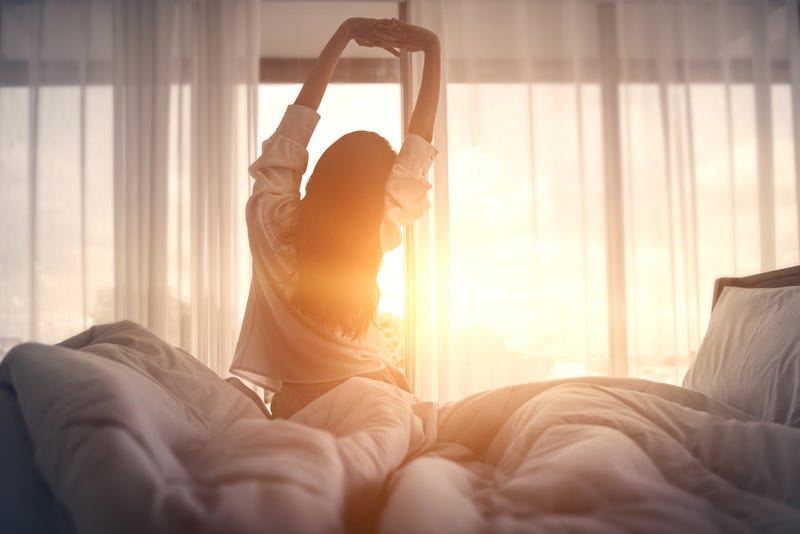
Everyone has great intentions about getting to bed early, getting good sleep and waking up early so they can be productive and brimming with energy. And just about all of us fail at those intentions.
So if you wanted to go to bed at the absolute best time to benefit your heart health and overall lifestyle, what would that timing be? Well, experts say it’s not really about time you go to sleep—it’s about resetting with some sunshine when you wake up.

Dr. David Plans, a neuroscientist, and his team of United Kingdom researchers extensively studied more than 90,000 people to find out if early behavioral patterns can affect heart health.
“This exercise was about: ‘Can we see early signs of potential behavioral risks in cardiovascular disease?’” Plans said. “And it turns out, we can.”
Plans, head researcher at global healthcare company Huma, said his team found a clear connection with falling asleep between 10 p.m. and 11 p.m. and lower heart disease.
But he said the findings were less revealing about a particular time and more indicative of the body’s “circadian rhythm,” the body’s internal clock that affects your physical, mental, and behavioral well-being.
“[Circadian rhythm] and our evolutionary ancestry has a much larger role to play in our health than we knew,” Plans said, adding that his 10 p.m. to 11 p.m. findings indicate that going to bed at a “reasonable” hour mean that those people are more likely to wake up when the sun is shining.
Exposure to that light when they wake up effectively resets the body’s clock.
“It’s that light that your eyes have ocular receptors for. That resets the circadian [rhythm],” he said. “And it’s circadian disruption that can lead to cardiovascular disease.”
So what’s the dreaded “night owl” to do? Ensure you wake up during daylight hours, Plans said, and get some sunshine first thing when you wake up in the morning!
“Even if you’re a night owl, that’s ok,” he said. “Even if you go to sleep at 3 a.m., all that matters is that you get up early enough the next day that that ocular receptor sees some sunshine.”
LISTEN on the Audacy App
Sign Up and Follow Audacy
Facebook | Twitter | Instagram
